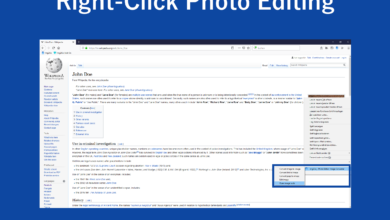Sales Optimization Tips and Strategies for Business Leaders

In today’s competitive business environment, mastering sales optimization is paramount for any company aiming to increase efficiency and profits. Understanding and applying key sales strategies can lead to profound improvements in customer engagement and sales performance. Business leaders who prioritize this aspect of their operations can see dramatic results in revenue growth. This article delves into actionable sales optimization tips and insights for cogent business strategies. Keep reading to discover ways to transform your sales processes and results.
Implementing Data-Driven Sales Strategies
Data is the currency of today’s sales leaders, with analytics playing a central role in strategy development. Implementing data-driven strategies involves collecting and scrutinizing large volumes of data to inform decision-making. This approach allows sales teams to identify successful tactics and areas needing improvement.
Data analytics tools can unearth valuable insights into customer buying behaviors, preferences, and pain points. These insights enable sales professionals to customize interactions, thus increasing the chances of conversion. An intimate understanding of the target audience forms the backbone of any effective sales campaign.
Aside from customer data, sales performance metrics are crucial for sales optimization. These metrics clarify the effectiveness of different sales channels, methods, and team members. Leaders can use this information to fine-tune their strategies, allocate resources more effectively, and set realistic, attainable targets.
Moreover, forecasting becomes increasingly accurate with data-driven strategies, aiding in inventory management and workforce allocation. This foresight helps prepare businesses for peak seasons or market changes, ensuring they can meet demand without overstretching resources.
Streamlining the Sales Process with Automation Tools

Automation stands out as a revolutionary factor in streamlining sales processes. Sales automation tools can handle mundane tasks, allowing sales professionals to focus on more strategic activities. This move towards automation not only enhances efficiency but can also improve accuracy in customer management and follow-ups.
From lead generation to customer onboarding, automation provides consistency and reliability in communication. Tools like email templates and scheduling software ensure that prospects and customers are engaged without requiring round-the-clock human intervention. Automation thus becomes an ally in nurturing leads through the sales funnel.
Task management and follow-up reminders are other aspects of the sales process that benefit from automation. By integrating these tools into their workflows, sales teams can ensure no opportunity is missed or follow-up is delayed. This systematic approach contributes to a smoother sales journey for salespeople and prospects.
And with advancements in artificial intelligence and machine learning, the capabilities of automation tools are expanding. Predictive analytics, for example, can suggest the next-best actions to sales reps, tailor communication based on customer profiles, and even predict future buying behaviors.
Harnessing the Power of CRM for Tailored Selling
Customer relationship management (CRM) systems provide a cornerstone for personalized selling experiences in the modern sales landscape. These platforms are powerful tools that enable sales teams to manage interactions with current and potential customers more effectively. A well-implemented CRM can offer a wealth of information to craft tailored pitches.
CRMs compile detailed customer profiles, capturing interactions and transactions across various channels. This data consolidation gives salespeople immediate access to customer history, allowing them to personalize communications and make informed offers that resonate with the individual customer’s needs.
Beyond personalization, CRM systems aid in managing the sales pipeline. With features designed to monitor the stages of a deal, sales reps can accurately gauge when to take the next step or if a different approach is needed. Such visibility is essential for streamlining the sales cycle and improving conversion rates.
The benefits of CRM use extend into strategic territory. Analyzing CRM data can help identify market trends and shifts in consumer preferences, enabling companies to adapt quickly. In the long term, CRM platforms are instrumental in shaping a responsive and agile sales strategy that responds to the evolving market landscape.
Overall, mastering sales optimization through data-driven strategies, automation tools, and CRM utilization is imperative for businesses seeking enhanced efficiency and profitability in today’s competitive landscape. By implementing these techniques, business leaders can streamline their sales processes and cultivate deeper customer relationships, driving sustained growth and success in the market.




